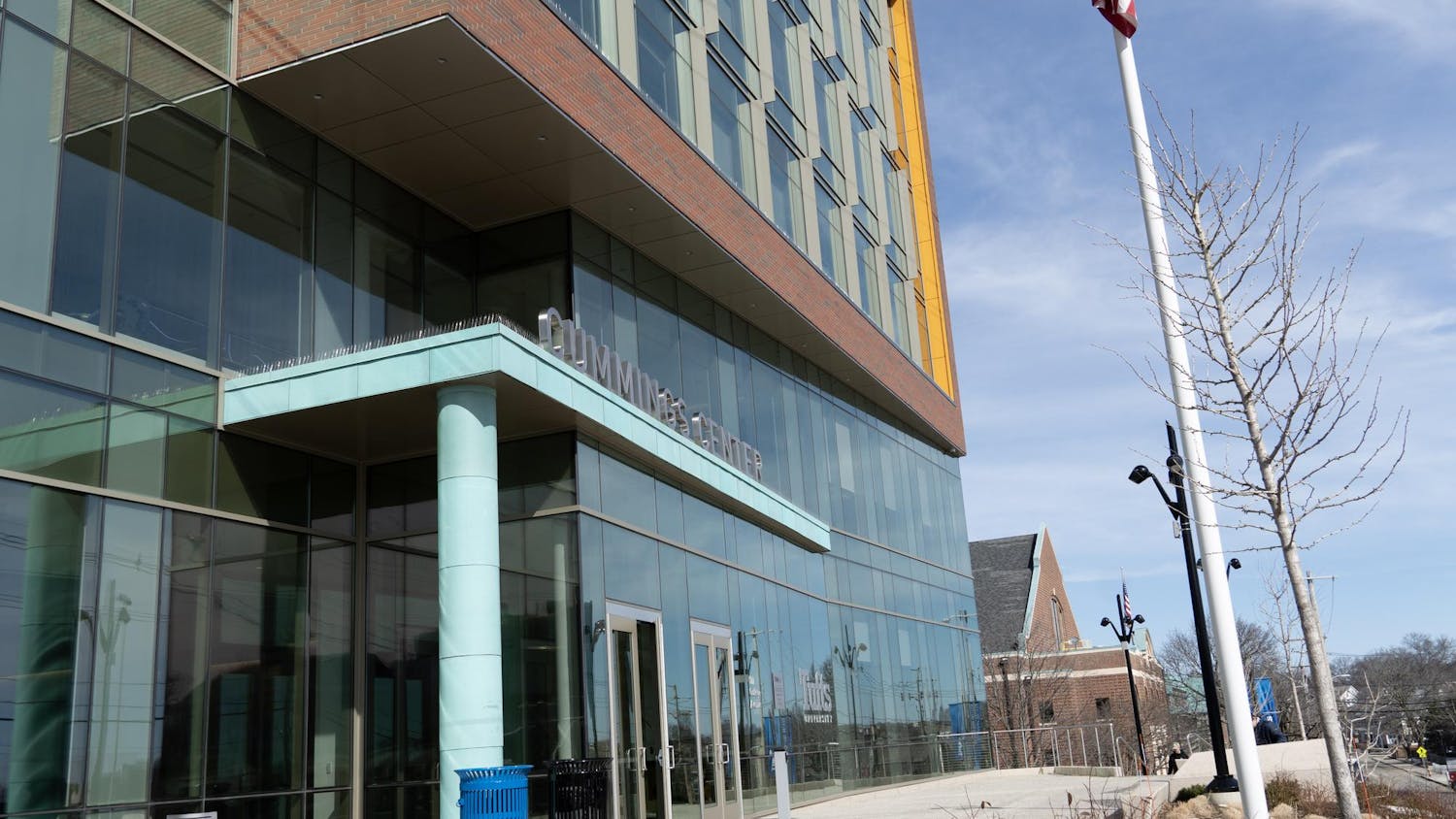Dean of Arts and Sciences James Glaser and Dean of the School of Engineering Jianmin Qu announced in a March 29 email that Tufts students could expect tuition to rise to $70,941 for the 2018–2019 academic year, a 3.76 percent increase from this year’s tuition.
According to Glaser, rising costs are an expected part of running a university, and the money from the increased tuition will “enable us to keep the university operating.” Glaser described the specific expenses that justified the tuition increase.
“These increased costs are associated with financial aid ... new and renovated buildings, health care, compensation for those who work at the university, and meeting government requirements, among other things,” Glasertold the Daily in an email.
Quoutlined the same reasons as Glaser for the increased costs, stating that running a university like Tufts is expensive.
"The costs of running a world-class, student-centered research university are substantial," Qu told the Daily in an email.
According to Qu, the Board of Trustees sets tuition annually, and this budget includes assumptions about potential future costs and revenues, which may change over time. Qu emphasized Tufts' commitment to keeping tuition raises at a minimum.
“We’re committed to keeping tuition as low as possible and to minimizing increases. It is a top priority for us, and we’ll continue to focus on balancing the cost of tuition with the need to provide a world-class student experience,” Qu said.
Nathan Foster, a senior and Tufts Community Union (TCU) Senate Trustee Representative, confirmed that the new tuition had been approved by the Board of Trustees and that the trustees had discussed ways to decrease costs on campus. However, Foster also expressed his frustration with limited student influence in the process of setting tuition.
“I definitely think that currently students don’t have a voice in these decisions, and they really ought to, because we’re central to Tufts,” Foster said. “We’re not the only point of Tufts but one of the main reasons why this university exists, and this is something that deeply affects us, and we should have a say in it.”
On Sunday, April 8, Foster and Class of 2021 Representatives Grant Gebetsberger, Mateo Gomez and Sarah Wiener presented their resolution, titled "A Resolution Urging Tufts to Maintain its Current Level of Affordability," to TCU Senate. The resolution asks that Senate propose to the administration that tuition increase rates match, and do not exceed, the rate of inflation, "meaning the actual cost to students maintains its current level of affordability relative to the affordability of other goods and services." The resolution passed unanimously, according to Foster. Foster said TCU Senate will now propose the resolution to the administration and the Board of Trustees, but he expressed uncertainty as to whether they will accept it.
“At the very least, what Tufts can do is stop making the problem worse by limiting total student charge increases to the rate of inflation, so that Tufts doesn't become more unaffordable each year,” he said of the resolution.
Foster described his other concerns about the tuition increase, explaining that it can hurt the effort to diversify the student body.
“[Also key] is asking that the economic diversity of the school increase, or at the very least stay constant each year," he said. "That cannot happen unless tuition increases are controlled or unless financial aid is seriously ramped up."
Data released by the Office of Institutional Research and Evaluation on April 9 stated that 40 percent of the Class of 2021 was on financial aid, and that over the past five years, the cost of attending Tufts University has risen for all students except those in the bottom two family income quintiles.
According to Foster’s research, which was conducted through TCU Senate, Tufts is the most unaffordable of its peer institutions when financial aid is factored in; these peer institutions include similarly competitive, mostly private institutions like Johns Hopkins University and Boston College.
“Among self selected peer institutions, Tufts has the lowest percentage of students receiving financial aid and, if you take financial aid into account, the highest cost of any of its peer institutions,” Foster said.
The March 29 email from Dean Glaser and Dean Qu to the student body stated that Tufts had increased its financial aid budget for the 2018–2019 school year by nearly seven percent, reserving over $84 million for undergraduate financial aid.
“We recognize that tuition increases are hard for all families, and particularly for families that depend on financial aid. Each year, when students re-apply for financial aid, the financial aid formula takes into account year-to-year tuition changes,” Glaser told the Daily.
Both Glaser and Qu said in emails to the Daily that they expect tuition to continue changing, and Foster expects that it will continue to rise.
“There will always be more things to spend money on, most of which, to be fair, are worthwhile. And there are usually ways to find savings. Tuition is raised at almost four percent a year because that is considered to be an acceptable rate of increase,” Foster wrote in an electronic message. “If the administration felt that six percent or seven percent a year were acceptable, they would find plenty of ways to spend that money. And if they really wanted to limit tuition increases, or even halt the hike completely, they'd manage it.”
Deans explain tuition increases for 2018–2019 school year

A student signs a large check to deliver to the Tufts administration in protest of tuition hikes.





